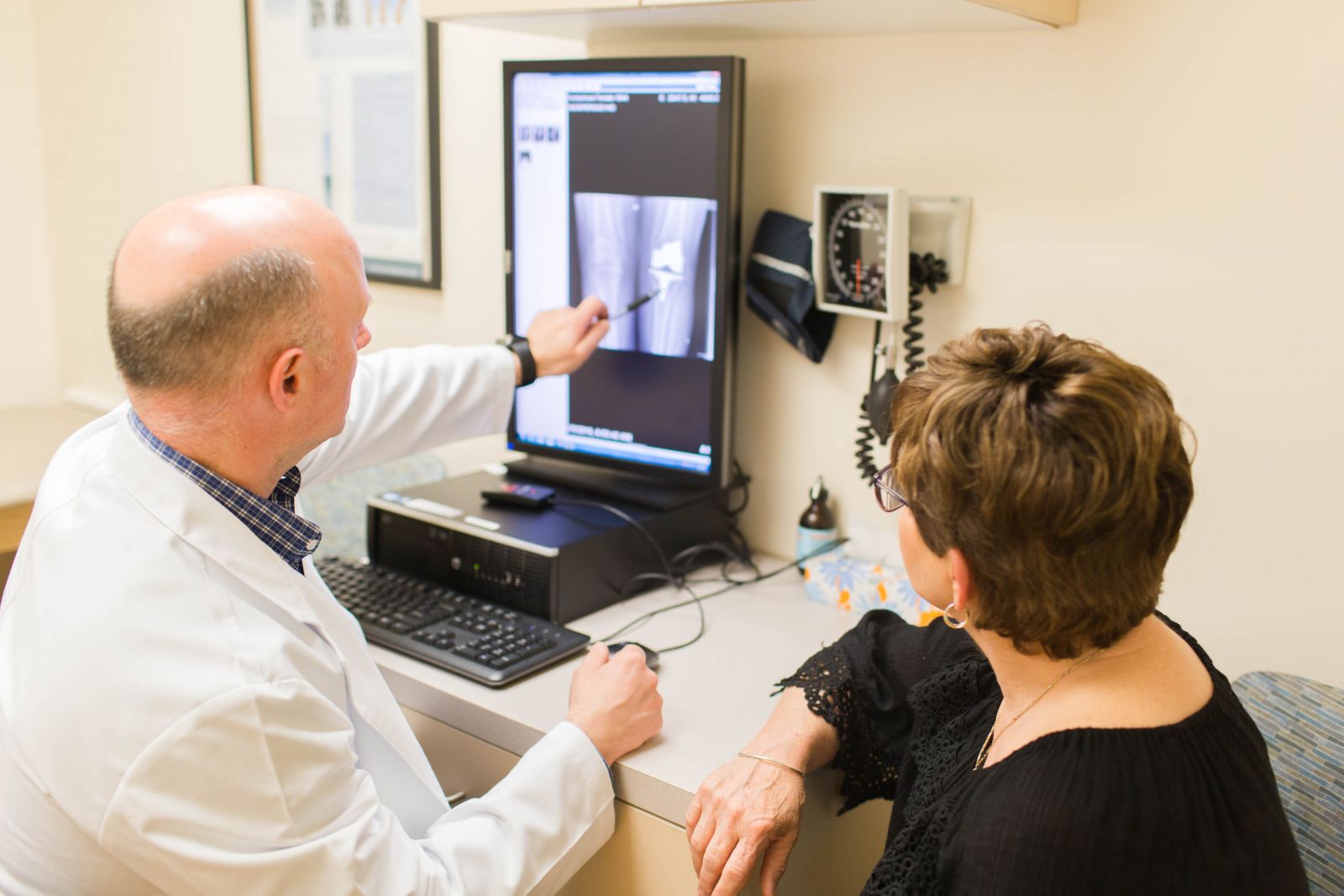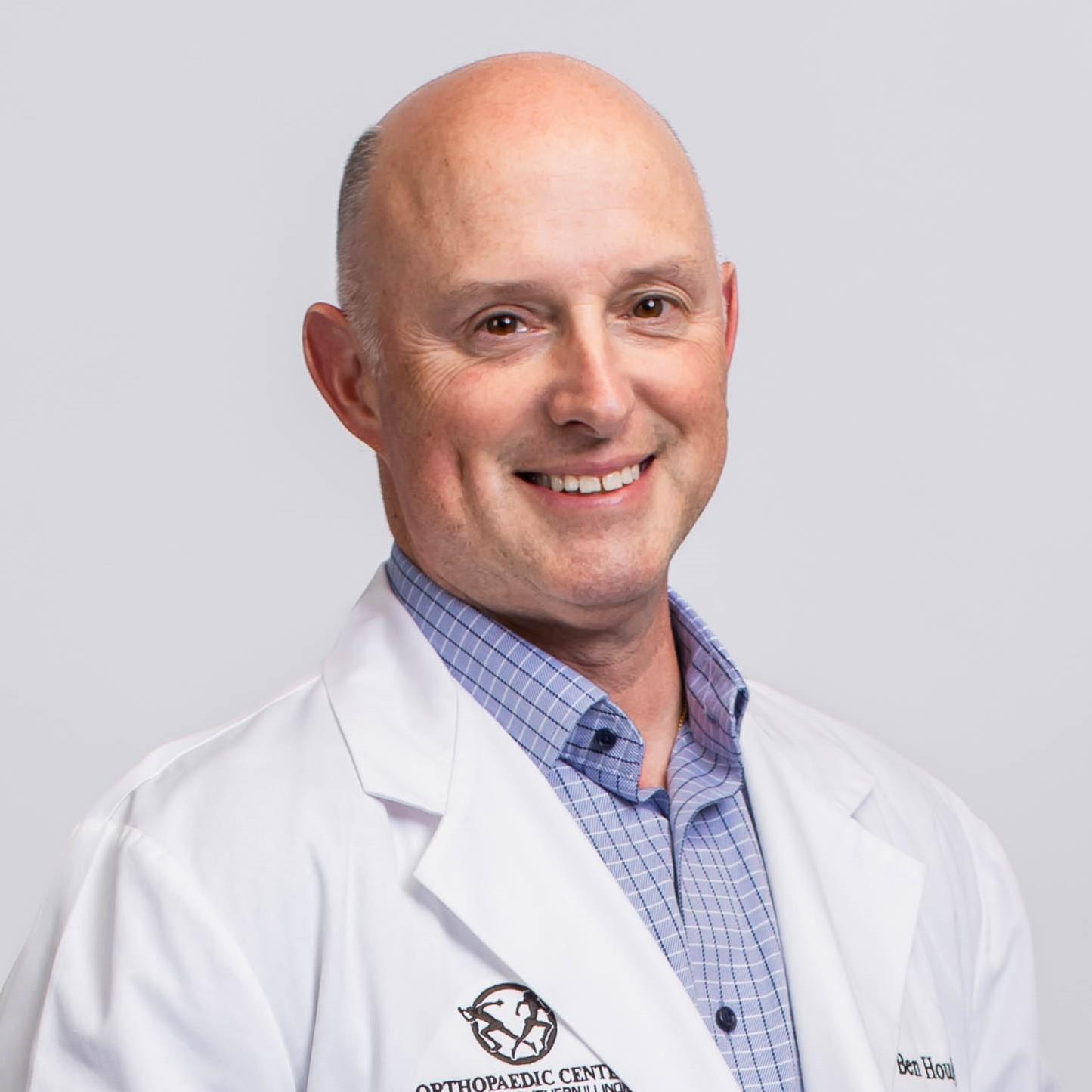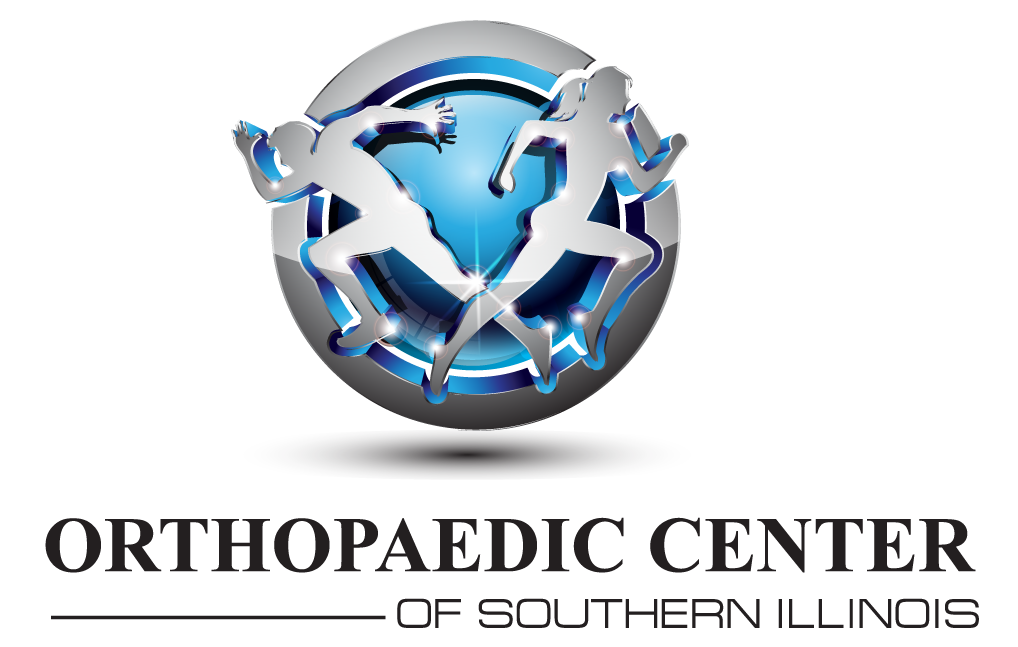Jean-Benoit Houle, M.D.
Dr. Ben Houle specializes in Sports Medicine and treatment of the injured athlete. He is a Diplomate of the American Board of Orthopaedic Surgeons and a Fellow of the Royal College of Surgeons of Canada. Dr. Houle joined the Orthopaedic Center of Southern Illinois in 1998 following the completion of a Fellowship in Orthopaedic Sports Medicine Surgery at the University of Ottawa, Canada.
Dr. Houle is a member of the American Academy of Orthopaedic Surgeons (AAOS), Arthroscopy Association of North America (AANA) and the American Orthopaedic Society for Sports Medicine (AOSSM). He has participated in numerous Orthopaedic research projects and publications.
Dr. Houle devotes his practice to joint replacement and visco-supplementation, as well as treatment of injured athletes and the promotion of safety in sporting activities.He assisted in the development of the Sports Medicine Clinic at the Center and has served as a team physician for the Mt.Vernon Township High School.
In addition to total joint replacement, a procedure that is performed on select patients prior to knee replacement is called IOVERA. IOVERA is a safe, innovative pain relief treatment administered to a patient's knee prior to having total knee replacement surgery. It uses extreme cold to stop nerves from sending pain signals to your brain. The effect is immediate and can last up to 90 days.
The IOVERA system is a handheld device that lets your treating provider apply just the right amount of extreme cold to targeted nerves in the leg - the ones causing pain. This process delivers immediate pain relief in the time it takes for a routine office visit, and does not cause pain. IOVERA does not contain medicine, is safe, and does not destroy any surrounding tissue.
Dr. Houle has interest in all knee surgeries; ACL Reconstruction, allograft meniscus, meniscus tears, cartilage transplantation, visco-supplementation, cartilage sparing surgery, as well as knee replacement and hip replacement surgeries. He has clinics at the Mt.Vernon and Nashville locations. To schedule an appointment with Dr. Houle, please click here.
Dr. Ben Houle is one of few physicians in Illinois offering this new knee replacement procedure from VERILAST which is expected to provide wear performance for 30 years of actual use under typical conditions.
What is VERILAST Knee Technology?
VERILAST Technology is a pairing of materials that is shown in laboratory testing to more than double the wear performance of the Smith & Nephew LEGION™ cruciate retaining (CR) knee replacement.
·It is the combination of Smith & Nephew’s award-winning OXINIUM™ metal alloy and a “cross-linked” plastic component (XLPE).
·VERILAST is a knee replacement technology that uses advanced, low-friction surfaces for both sides of the knee joint.
During this testing, the implants were subjected to 45 million cycles, or steps, on a wear simulator.
Forty-five million cycles is equivalent to 30 years of an active adult’s life under typical conditions.
Each cycle loaded the knee implants with 585 pounds of pressure, or an industry standard of 3.2 times the typical body weight of a knee replacement patient (185 pounds). During the same test, a similar knee made from conventional materials—cobalt chrome and standard plastic—were submitted to wear testing, as well.
The results of the testing were remarkable.
98% Wear Reduction: After 5 million cycles, the LEGION CR Knee with VERILAST Knee Technology reduced 98% of the wear that was generated by the other, traditional implant materials.
81% Wear Reduction: When the LEGION CR Knee with VERILAST Knee Technology kept “walking” out to 45 million cycles, it still reduced 81% of the wear generated by the conventional material knee implant that was stopped after the first 5 million cycles.
About VERILAST Knee Technology
Based on laboratory wear simulation testing, the LEGION◊ Primary Knee System with VERILAST Technology is expected to provide wear performance sufficient for 30 years of actual use under typical conditions.
The results of laboratory wear simulation testing have not been proven to predict actual joint durability and performance in people. A reduction in wear alone may not result in improved joint durability and performance because other factors, such as bone structure, can affect joint durability and performance and cause medical conditions that may result in the need for additional surgery. These other factors were not studied as part of the testing.
What is OXINIUM™ (Oxidized Zirconium) material?
OXINIUM Oxidized Zirconium, a tough, smooth metal whose ceramic surface is 4,900 times more abrasion resistant than cobalt chrome. The ceramic surface is created through a manufacturing process where oxygen is naturally diffused into the zirconium metal as it is heated in air. When the metal is saturated with oxygen, the surface transforms from a metal to a ceramic. This is a transformation of the original metal surface into a ceramic and not an externally applied coating.
OXINIUM is a hypoallergenic implant material available for femoral-side knee implants. Other implant materials (primarily cobalt chrome) contain nickel and chromium, two metals associated with metal allergy. If patients have an allergic reaction to their cobalt chrome knee implant, it may have to be surgically removed.
OXINIUM is more than 20% lighter than a same-sized implant made from cobalt chrome—the other metal from which knee implants can be made.
OXINIUM received the 2005 ASM International Engineering Materials Award for its innovative design.
Since 2001, more than 200,000 OXINIUM knee implants have been implanted worldwide.

Total Joint Replacement FAQ
Will I Stay in the Hospital After Surgery?
You can plan for at least 1 night in the hospital after surgery. Sometimes patients need to stay 2-3 nights. Some patients choose to go to a skilled care facility, or a swing bed facility. Most go home upon discharge. You will need to have a responsible adult at your home for the first week or so.
Insurance has specific requirements that patients must meet to be accepted into a skilled care facility, inpatient rehab, or swing bed facility. Please be aware that Medicare may not cover a skilled nursing facility stay following elective surgery. Coverage typically depends on meeting specific medical criteria, including a qualifying inpatient hospital stay and a demonstrated need for skilled care.
Once home, we will order Home Health Services. If approved through your insurance, a Nurse and Physical Therapist will visit you a few times a week once you arrive home. They may request further services, like Occupational Therapy.
Outpatient Physical Therapy will be ordered for you to attend at a facility of your choice after you are released from Home Health, or if Home Health is not approved through your insurance. You will have outpatient physical therapy for about 6 weeks after surgery. Physical therapy is VERY important to your healing process.
Will I Need Equipment at Home? What About Medication?
Yes. You will need a walker, and perhaps other equipment, like a bedside commode or toilet riser. Total Knee arthroplasties are ordered a continuous range of motion device (CPM) or ROMTECH device. The equipment will be ordered for you by the Social Worker at the hospital prior to your discharge based on your type of surgery. They can be picked up at a local equipment store.
When you leave the hospital, you will be prescribed pain medication and a blood thinner. These will be sent to the pharmacy of your choice. The Blood thinner is a very important medication for you to take. It will help prevent blood clots, otherwise known as deep vein thrombus (DVT), which is a potential complication after total joint surgery. Sometimes blood thinner can be expensive at the pharmacy. If this happens, we have access to coupons or samples.
When Will I Need to Follow Up in Your Office After Surgery?
You will see a provider 2 weeks after surgery. Then you will be seen at 6 weeks, 12 weeks and 1 year after surgery. We will obtain X-rays and evaluate your healing, progress and address any concerns you may have. If you have a total hip arthroplasty, you will not have any sutures or staples removed. If you have a total knee arthroplasty, the clinic staff will remove your staples at your first post operative appointment.
When Can I Drive After Surgery?
If you drove prior to surgery, you can expect to be able to drive after surgery at about 4-6 weeks post op. This would depend on if you had the right or left leg operated on, if you drive an automatic or manual vehicle. You will not be allowed to drive if you are still taking narcotics.
What Do I Ned to do to Prepare for Surgery?
You will need preoperative clearance from your medical provider. If you see a cardiologist, we will need clearance from them as well. Our surgical scheduler will send your family physician/cardiologist the clearance form to be completed, but you will need to schedule an appointment with your family physician to get it completed.
You will be required to attend a Total Joint class at Good Samaritan Hospital. The class is led by one of the nurses at the hospital. She will give you information on the surgical process and can answer a lot of questions you may have regarding your hospital stay. At this class, you will meet with the hospital case manager supervisor/social worker, home health nurse to learn about post operative therapies and services.
Is There Anything I Need to Know After My Surgery?
Yes! After surgery, we would like you to postpone any non-urgent dental appointments for 3 months. Of course, if you have something urgent that needs taken care of, please do so. After the initial 3 months, if you do have a dental appointment, we require you to take pre-dental antibiotics. This is to help prevent any infection. We also will order you pre-procedure antibiotics if you need to have any gastrointestinal procedures, like a colonoscopy. Just call our office and let us know before your appointment and our nurses will send the antibiotics in to your pharmacy.
What Things Are Normal After Surgery?
You may hear a click when you walk. This is normal. You may notice the operative leg is more swollen or warm to touch than the other leg. Swelling and warmth can be normal for a period of time after surgery. You had big surgery! However, if you ever have concerns about ANYTHING in your post operative period, we are available to talk to you.
Are There Any Things to Look for After Surgery?
Calf pain, calf swelling, calf redness, feeling like you have a Charlie horse- these can be signs of a blood clot. Doing range of motion, walking, taking blood thinner, and wearing the TED hose can help prevent this risk. Constipation can occur after surgeries, especially if you are taking a narcotic. An over-the-counter stool softener such as Colace, Dulcolax or MiraLAX can help, as well staying hydrated and eating fiber rich foods. Not having a bowel movement can be very uncomfortable but also can become a big issue if not resolved.
If you were to experience any of these complications, we would ask you to call our office at 618-242-3778. If after hours or the weekend call the hospital at 618-242-4600 to have the hospital page our on-call surgeon or go to the Emergency Room for treatment.
Infection, Blood clots and constipation are 3 things we would like you to keep your eye out for after surgery.
We will ask you to monitor yourself for signs and symptoms of infection, things like fever, chills, foul odor, drainage.


